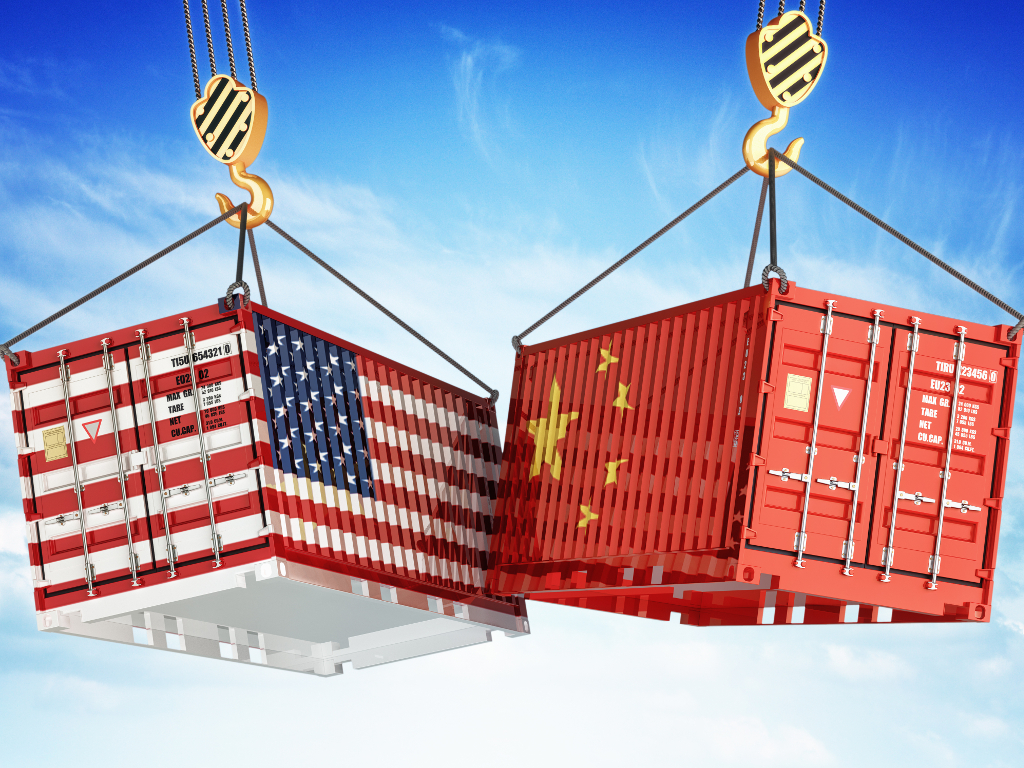DFC Arrives to Serbia – What Benefits Does Cooperation with This US Corporation Bring?
Source: eKapija
 Wednesday, 23.09.2020.
Wednesday, 23.09.2020.
 11:33
11:33
 Wednesday, 23.09.2020.
Wednesday, 23.09.2020.
 11:33
11:33
Illustration (Photo: Jan Willem van Hofwegen/shutterstock.com)

Let us remind that a bilateral agreement was signed with the USA in Washington on September 4 on the normalization of the economic relations of Belgrade and Pristina. In addition to Pristina's obligation to join the “mini-Schengen” and the agreed construction of highways and a railway to Pristina, an important segment of the agreement concerns the DFC office in Belgrade, whose opening has been rated as very positive. Accordingly, the credibility of the process of economic development of the country will be secured, the credit rating will be helped and new investors will be brought.
What is DFC?
The DFC was established through the passing of the Better Utilization of Investments Leading to Development (BUILD) Act in 2018, but officially started operating this January. It incites private investments in developing countries in various sectors, including infrastructure, energy and healthcare.
Also, it is considered the most significant change of the ecosystem of foreign help of the USA in this century and a critical tool for countering China, Ivan Nikolic of the Faculty of Economics in Belgrade says for our portal.
He explains that, formally, the DFC is a successor of the powerful OPIC (Overseas Private Investment Corporation), a U.S. government agency which was formed in 1971 to support, that is secure, investments of the private sector of the U.S. in developing countries, and it also included the activities of the Development Credit Authority of the United States Agency for International Development (USAID).
– The DFC has an ever stronger development mandate than the OPIC. The new development possibilities include a greater financial capacity (USD 60 billion, compared to the OPIC's USD 29 billion), an increased accent on inter-agency cooperation, greater flexibility in working with non-U.S. Companies, authority for capital financing and ability to issue loans and guarantees in the local currency so as to protect the investors from the risk of currency change. The DFC incites private investments in developing countries in a wide range of sectors, including infrastructure, energy and healthcare – Nikolic explains.
USA-China arm wrestling
The decision to open a DFC office in Belgrade is seen by political analysts as a decisive move of the USA toward increasing economic and political ties with the region and creating the possibility for American companies to counter the increasing influence of China in the region in more concrete terms. However, how will this influence the cooperation of Serbia with other countries such as China, but also Russia, as well as their investments?
Milan Krstic, an assistant professor at the Faculty of Political Sciences in Belgrade, says that the opening of the DFC office in Serbia is certainly a good thing that will benefit the business community and points out that the presence of the DFC in Serbia is not a point of contention for either Moscow or Beijing.
(Photo: cybrain/shutterstock)

What's more important, Krstic says, is that we should not rush to make projections and conclusions before all the details of the cooperation are known.
– We still don't know what the scope of their presence in Serbia will be and how much money will be set aside for the purposes of crediting and financing projects in the Serbian economy. Until this is known and until we learn under which conditions this will happen, we shouldn't rush to call this a “historic event” – Krstic points out.
He notes that, in the future, this cooperation could be jeopardized by potential other stipulations of the document signed in Washington, such as those concerning 5G equipment or diversification of energy sources.
Last week, Serbian Prime Minister Ana Brnabic mentioned this topic. At the opening of the Center for Innovations and Digital Development of Huawei, in response to the journalists' questions about the potential impact of some items within the Washington agreement on the relations with Huawei, she pointed out that Serbia was not interested in unreliable technologies either.
– It is in our interest for the tendering for the implementation of the 5G network to be open and transparent, while complying with international standards, which said agreement entails – Brnabic said.
According to her, when it comes to the 5G network, what Serbia is to implement must be international standards, which are honored everywhere in the world. As she said, she discussed this with representatives of Huawei. She underlined that both sides had “absolutely the same” understanding of the part of the agreement that says that “Serbia must have an open and transparent tendering procedure for partners when the time comes for the 5G network”.
Benefits for employers in Serbia
The news of the opening of the DFC office has been rated very positively by the top representatives of the Serbian administration, political analysts, economists, but also members of the business community. It has been said that the opening of the DFC will be important for various industries and that it will provide an opportunity to many companies. What benefits will they have and how will companies from Serbia be able to realize them?
Bojan Stanic of the Sector for Strategic Analyses, Services and Internationalization of the Chamber of Commerce of Serbia (CCIS) says that the arrival of the DFC points to a stronger economic cooperation between the United States and Serbia, giving a strong incentive to foreign investors and creditors to start and continue their business operations in our country and the region.
Illustration (Photo: Milos Muller/shutterstock.com)

However, when it comes to micro, small and medium enterprises, he points out that, in general, there are limits to the access to finance for many enterprises.
– Considering that they have only just been founded or that they are not yet well positioned in the market, many companies have weak credit potential and therefore do not meet the conditions for getting loans which are part of the standard offer of commercial banks. Last year, the CCIS launched the project of financing beginners in business through a guarantee scheme, which the government agreed with commercial banks. We believe that similar projects could be supported by the American Development Bank – he says.
– If we try to simplify things, the state has various sources of finance, and its goal is for them to be the most favorable. There are budget funds for capital investments, which are probably limited this year due to the growth of the deficit. On the other hand, the country's credit rating is growing and the risk premium is dropping, so the state's debt costs are lower – Stanic adds.
Economist Ivan Nikolic agrees that there are limits to the access to finances. He notes that the DFC's projects must go through financial, ecological and social impact analyses in order to ensure that they meet international standards.
– Even in the region of the Western Balkans, many utility services and other potential borrowers do not meet the requirements due to the lack of credit solvency. Due to stricter social and ecological standards, the crediting of the DFC will inevitably remain slower, which will turn off some investors. Conversely, Chinese banks and companies have a tendency to have looser standards, non-transparent contracts and often charge for projects without practicing due diligence... – Nikolic says.
When it comes to the way the cooperation and communication between the DFC and companies in Serbia will function, Stanic says that the CCIS, as the general representative of the business community in the country, will be the key partner for connecting the DFC and American investors with companies, including micro, small and medium enterprises.
Sandra Petrovic
Companies:
 Privredna komora Srbije
Privredna komora Srbije
 Ekonomski Institut a.d. Beograd
Ekonomski Institut a.d. Beograd
 Fakultet političkih Nauka FPN Beograd
Fakultet političkih Nauka FPN Beograd
 USAID Srbija
USAID Srbija
Tags:
American Development Bank
US International Finance Corporation
DFC
arrival of DFC
importance of DFC
Ivan Nikolić
Milan Krstić
OPIC
Bojan Stanić
Belgrade Priština highway
Belgrade Priština railway
Washington agreement
Comments
Your comment
Most Important News
Full information is available only to commercial users-subscribers and it is necessary to log in.
Follow the news, tenders, grants, legal regulations and reports on our portal.
Registracija na eKapiji vam omogućava pristup potpunim informacijama i dnevnom biltenu
Naš dnevni ekonomski bilten će stizati na vašu mejl adresu krajem svakog radnog dana. Bilteni su personalizovani prema interesovanjima svakog korisnika zasebno,
uz konsultacije sa našim ekspertima.


 Izdanje Srbija
Izdanje Srbija Serbische Ausgabe
Serbische Ausgabe Izdanje BiH
Izdanje BiH Izdanje Crna Gora
Izdanje Crna Gora


 News
News






